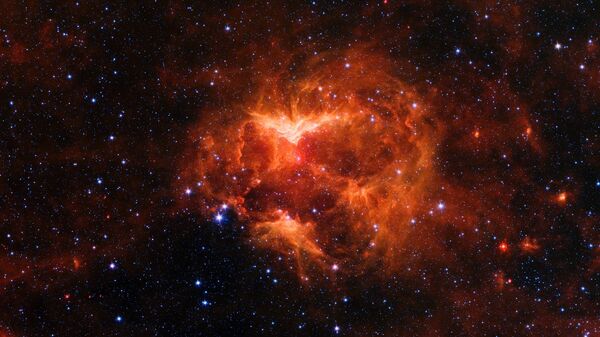NASA has officially named MU69, a small icy rock beyond Pluto, ‘Arrokoth’ – the new moniker was chosen after the original, Ultima Thule, drew backlash over its Nazi connotations.
In an official statement, the US space agency explained the name was meant “sky” in the Native American Powhatan/Algonquian language, and it had sought consent from Powhatan Tribal elders and representatives, for its use.
"The name reflects the inspiration of looking to the skies and wondering about the stars and worlds beyond our own,” said lead scientist Alan Stern of Southwest Research Institute in a statement.
'Arrokoth': a Native American term meaning “sky” in the Powhatan/Algonquian language. With consent from Powhatan Tribal elders and representatives, it's now the official name for the Kuiper Belt object visited by @NASANewHorizons. About today's ceremony: https://t.co/1jp3Y2CvNX pic.twitter.com/ni7TGq8zYE
— NASA (@NASA) November 12, 2019
NASA’s official statement doesn’t allude to whether the controversy over the original name influenced its decision, although it’s somewhat astounding Ultimate Thule was ever chosen in the first place, despite it referencing a mythical northern land in classical and medieval European literature described as beyond the borders of the known world.
Hey guys remember it’s called #MU69 bc
— fuckin finnpoe is endgame OKAY (@spacetrash__) January 1, 2019
1) No Nazi connotations
2) nice
The Thule Society was a German occultist group founded in Munich after World War I, which went on to sponsor Deutsche Arbeiterpartei (German Workers' Party), later reorganised by Adolf Hitler into the National Socialist German Workers' Party (NSDAP - or Nazi Party). While Hitler himself was never a member, its ranks were a veritable Who's Who of Nazi sympathizers and leading figures, including Rudolf Hess, Alfred Rosenberg, Hans Frank, Julius Lehmann, Gottfried Feder, Dietrich Eckart, and Karl Harrer.
The Society identified Ultima Thule as a lost ancient landmass in the extreme north, near Greenland or Iceland, and the ancestral home of the Aryan people. Thule was a land located by Greco-Roman geographers in the farthest north. The term ‘Ultima Thule’ is also mentioned by Roman poet Virgil in pastoral poems. It’s believed Thule was the Latin name for Scandinavia, although Virgil simply uses it as an expression for the edge of the known world.
The nickname is especially tactless given the immense relevance to Nazism to US space exploration efforts. The creator of Hitler’s feared ‘wunderwaffen’, the V-1 and V-2 rockets which wrought scattershot havoc on Britain in the final stages of World War II, Werner Von Braun was brought to the US by the Pentagon, along with dozens of scientists and engineers from his team and captured V-2s under the auspices of Operation Paperclip – this formed of the basis of the US space program.
Hey guys remember it’s called #MU69 bc
— fuckin finnpoe is endgame OKAY (@spacetrash__) January 1, 2019
1) No Nazi connotations
2) nice
Major General Walter Dornberger, Hitler's military liaison who worked with Von Braun, also came to the US at the end of World War II, becoming a top executive in Bell Aviation Corporation in New York - speaking at a congressional hearing in Washington in 1958, Dornberger insisted America's top space priority should to be to "conquer, occupy, keep, and utilize space between the Earth and the moon." In a subsequent address to a National Missile Industry Conference, he dismissed NASA's activities to date as "space stunts" and urged more attention be given to space weaponry.
"Gentlemen, I didn't come to this country to lose the Third World War — I lost two," he explained.


